Find Help
More Items From Ergsy search
-

Inpatient Surgery at North Bristol NHS Trust
Relevance: 100%
-
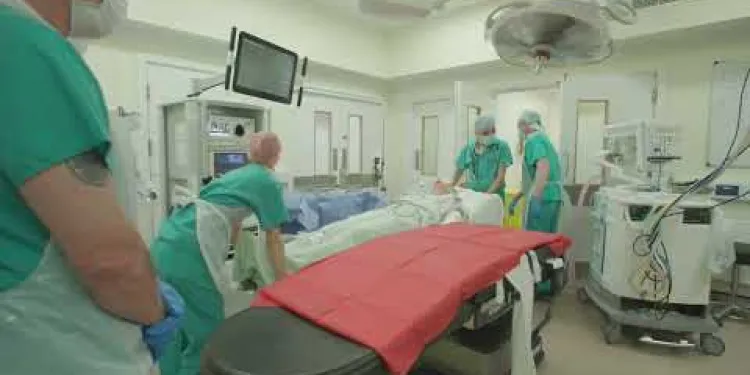
Prostate Surgery
Relevance: 47%
-
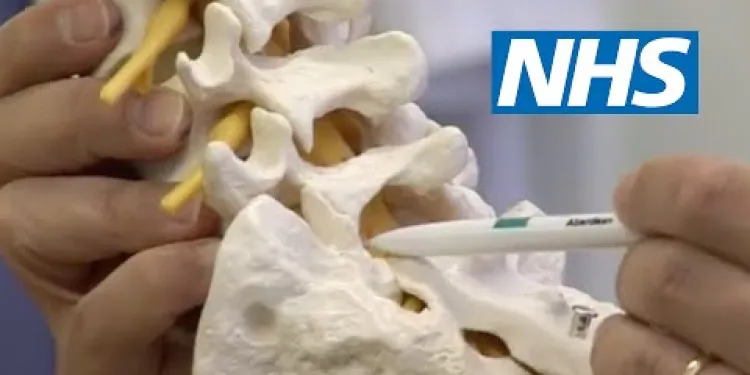
Lumbar surgery | NHS
Relevance: 44%
-

Weight Loss Surgery
Relevance: 44%
-
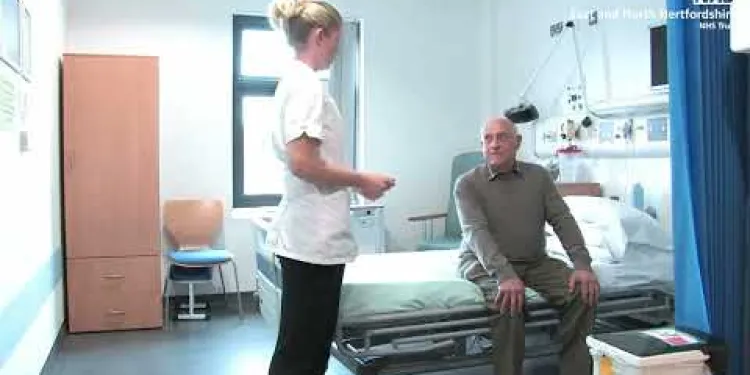
A journey to hip surgery
Relevance: 44%
-

Is surgery necessary for Crohn's disease?
Relevance: 42%
-

On the day of your cataract surgery
Relevance: 41%
-

Evidence-Based Interventions: haemorrhoid surgery
Relevance: 41%
-

When is surgery recommended for BPH?
Relevance: 41%
-
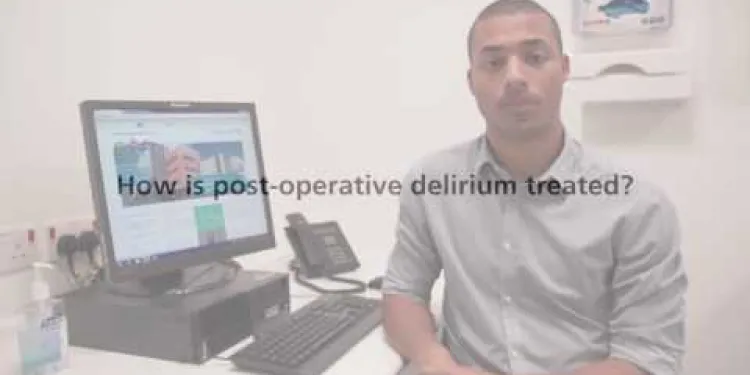
Experiencing delirium after surgery
Relevance: 41%
-

How do I prepare for hip replacement surgery?
Relevance: 40%
-

How do I know if my surgery is considered elective or urgent?
Relevance: 39%
-

Thyroid eye disease. Squint surgery - The operation
Relevance: 39%
-

How does surgery treat prostate cancer?
Relevance: 38%
-

What factors affect the waiting time for my surgery?
Relevance: 38%
-
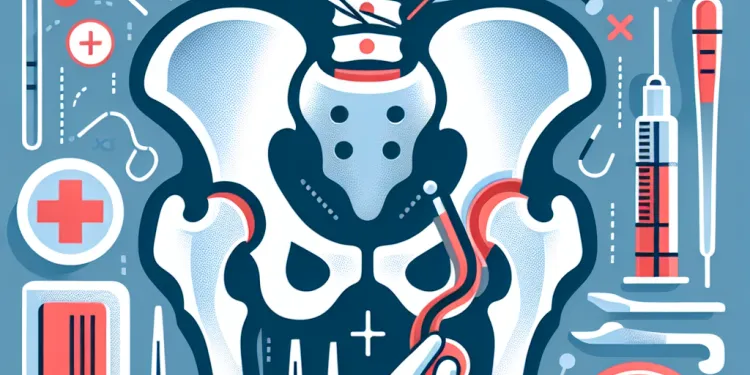
What is minimally invasive hip replacement surgery?
Relevance: 38%
-

What are the side effects of prostate cancer surgery?
Relevance: 38%
-

What is the likelihood of needing surgery for suspected appendicitis?
Relevance: 38%
-

Is surgery always required to treat flesh-eating disease?
Relevance: 38%
-

What are the risks associated with hip replacement surgery?
Relevance: 38%
-

Will changing my surgery date impact my waiting time?
Relevance: 38%
-

Is there a national database for checking waiting times for surgeries?
Relevance: 38%
-
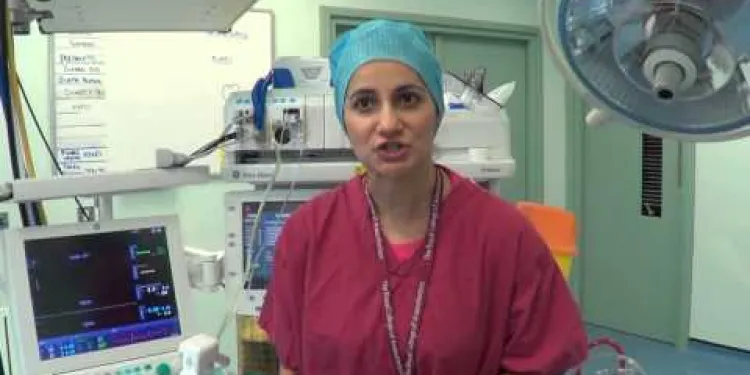
Enhanced Recovery After Surgery in Forth Valley
Relevance: 37%
-

Cataract surgery can resolve life long short-sightedness?!
Relevance: 37%
-

How long does a hip replacement surgery take?
Relevance: 37%
-

How much does hip replacement surgery cost in the UK?
Relevance: 37%
-

Undergoing day case surgery at University Hospitals Bristol
Relevance: 37%
-

What does Carpal Tunnel Syndrome surgery involve?
Relevance: 37%
-
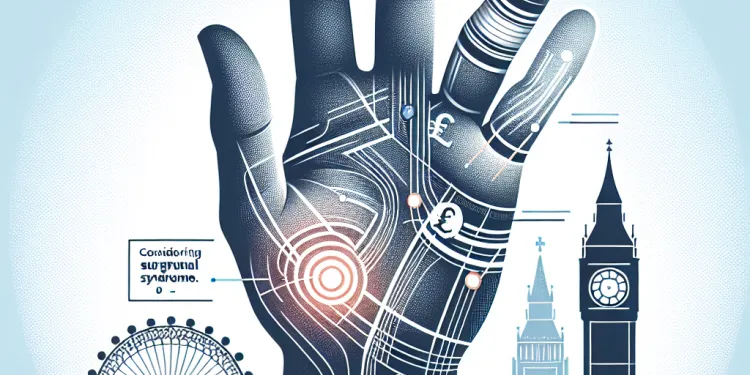
When should I consider surgery for Carpal Tunnel Syndrome?
Relevance: 36%
-

What is the recovery time after Carpal Tunnel Surgery?
Relevance: 36%
-
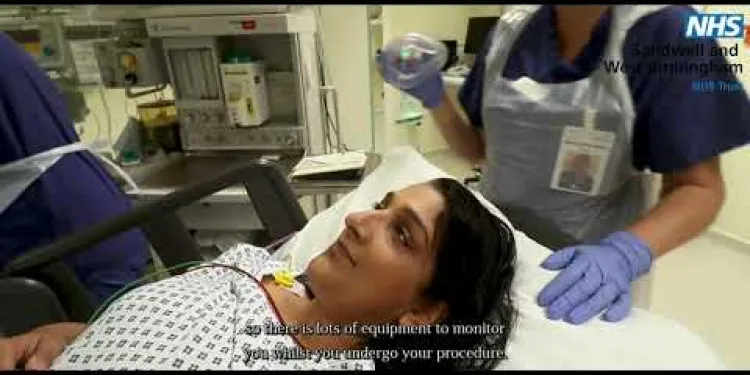
What to expect when visiting our hospitals for surgery | Theatres
Relevance: 36%
-
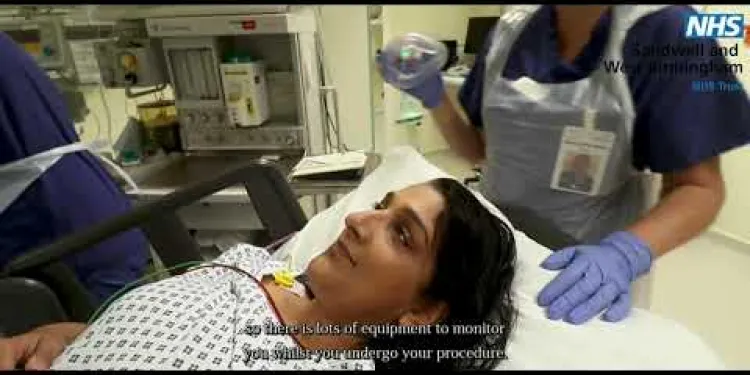
What to expect when visiting our hospitals for surgery | Theatres
Relevance: 35%
-
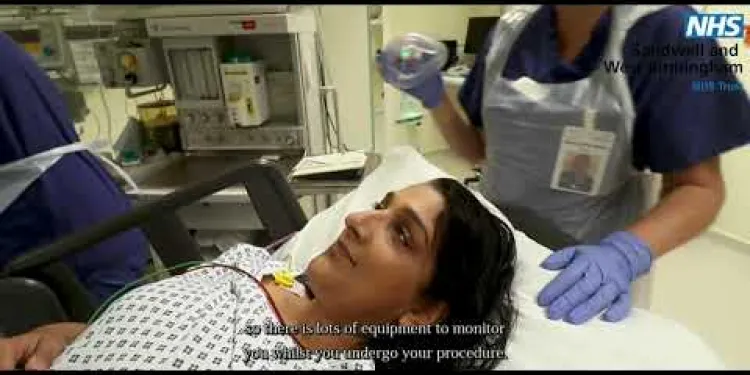
What to expect when visiting our hospitals for surgery | Theatres
Relevance: 35%
-

NHS Faces Backlash Over Record-Breaking Surgery Waiting Times
Relevance: 35%
-

How do AI-assisted robotic systems enhance lung cancer surgeries?
Relevance: 35%
-

Who should I contact for questions about surgery waiting times?
Relevance: 35%
-

What type of anaesthesia is used during hip replacement surgery?
Relevance: 35%
-

Post hand surgery - Stiffness management and trigger finger
Relevance: 34%
-
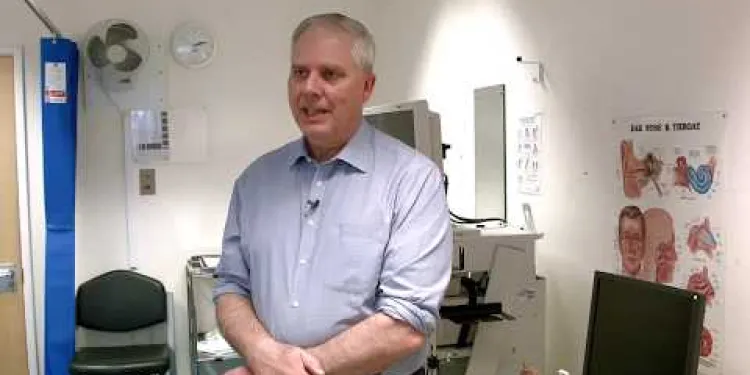
Evidence-Based Interventions: snoring surgery in the absence of Obstructive Sleep Apnoea (OSA)
Relevance: 34%
-
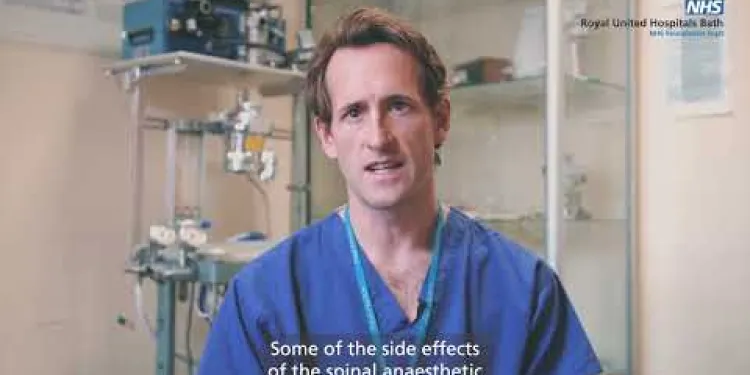
Your anaesthetic choices for your planned hip or knee replacement surgery at the RUH.
Relevance: 33%
Inpatient Surgery at North Bristol NHS Trust
Inpatient surgery at North Bristol NHS Trust is a vital component of healthcare services in the UK, dedicated to providing specialized and comprehensive surgical care for patients who require a hospital stay. This guide provides an overview of what patients can expect and the various aspects involved in their surgical journey.Consultations and Preoperative Care
Before undergoing inpatient surgery, patients at North Bristol NHS Trust will have an initial consultation with their consultant surgeon or a member of the surgical team. During this consultation, the patient's medical history and current health will be assessed. Preoperative tests, such as blood work, ECG, or imaging studies, may be conducted to ensure the patient is fit for surgery. Pre-surgery appointments often include discussions about the procedure, anesthesia options, and any preparatory steps the patient should take.Surgical Procedures and Expertise
North Bristol NHS Trust boasts a team of highly experienced and skilled surgeons, capable of performing a wide array of complex surgical procedures. These range from general surgery to specialized fields such as orthopedics, cardiothoracic surgery, neurosurgery, and more. The surgical facilities are equipped with state-of-the-art technology to facilitate high standards of care and precision during operations.Postoperative Care and Recovery
After the surgery, patients are moved to a recovery room where they are closely monitored as the anesthesia wears off. They are then transferred to a ward tailored to their specific needs for further recovery. The Trust places significant emphasis on postoperative care, including pain management, wound care, and physical therapy if needed. Patients receive comprehensive instructions and follow-up appointments to ensure a smooth recovery process.Patient Support Services
North Bristol NHS Trust offers a variety of support services to enhance patient experience and recovery. These include nutritional counselling, psychological support, and rehabilitation services. The Trust also provides detailed patient information leaflets and access to specialist nursing staff to answer any queries or concerns.Visiting and Family Involvement
The role of family and friends in a patient's recovery is acknowledged and encouraged at North Bristol NHS Trust. Visiting hours are structured to allow family members to spend time with their loved ones while respecting the recovery needs of all patients. In some circumstances, special arrangements can be made for extended visiting times.Feedback and Continuous Improvement
Patient feedback is highly valued at North Bristol NHS Trust, with mechanisms in place for patients and their families to provide comments and suggestions about their care experience. This feedback is used to drive continuous improvement in the quality of care and patient services. Regular patient satisfaction surveys contribute to the Trust's commitment to excellence. In summary, inpatient surgery at North Bristol NHS Trust is characterized by high-quality surgical care, comprehensive preoperative and postoperative services, and a strong support system designed to promote patient recovery and well-being.Inpatient Surgery at North Bristol NHS Trust
Inpatient surgery at North Bristol NHS Trust is when patients need to stay in the hospital for surgery. This surgery is important for helping people get better. This guide will explain what happens during your hospital visit and surgery.Consultations and Preoperative Care
Before your surgery, you will talk with a doctor about your health. This is called a consultation. The doctor will check your medical history and see how healthy you are. You might need some tests like blood tests or heart checks. These tests help make sure you are ready for surgery. You will also talk about what will happen during the surgery, the kind of medicine you will get to stay asleep called anesthesia, and what you need to do before the surgery.Surgical Procedures and Expertise
The hospital has very experienced doctors and surgeons. They know how to do many different surgeries. They can do general surgery and more complex ones like bone, heart, and brain surgeries. The hospital has modern tools to help doctors do surgery safely and well.Postoperative Care and Recovery
After your surgery, you will go to a special room to wake up from the anesthesia. Nurses and doctors will check on you there. You will then move to a ward where you can rest and get better. The hospital focuses on helping you manage pain and take care of any wounds. They will also teach you exercises if needed. You will get clear instructions and have follow-up appointments to help you recover.Patient Support Services
The hospital offers services to help you feel better. These include advice on what to eat, talking to someone if you're worried, and exercises to get strong again. You can also get information booklets and talk to special nurses if you have questions.Visiting and Family Involvement
Family and friends can help you feel better, so the hospital lets them visit you. There are visiting hours for family to come and see you. Sometimes, if needed, they can visit outside these hours too.Feedback and Continuous Improvement
The hospital wants to know how to make things better. They listen to what patients and their families think about their care. You can tell them what you liked or didn’t like. This feedback helps them improve care for everyone. In summary, surgery at North Bristol NHS Trust is all about giving good care and support. They help patients get ready, take care during surgery, and support recovery after surgery.Frequently Asked Questions
What is the process for being admitted for inpatient surgery?
You will receive a letter with instructions on when and where to arrive. You will be assessed by a medical team to ensure you are fit for surgery.
What should I bring with me for my inpatient stay?
Bring personal items such as toiletries, comfortable clothing, medications, and any documentation related to your health and surgery.
How long will I need to stay in the hospital after my surgery?
The length of stay varies based on the type of surgery and your individual recovery. Your healthcare team will provide an estimated timeframe.
Can I have visitors while I am an inpatient?
Yes, visiting hours and policies will be provided to you. Make sure to inform your visitors and adhere to any specific guidelines.
Will I be able to contact my family during my stay?
Yes, you are allowed to use your mobile phone outside of medical procedures and consultations, or you can use the hospital phone services.
How will I manage my pain after surgery?
Your medical team will discuss pain management options with you, which may include medication, physical therapy, or other methods.
Will I be able to eat and drink before my surgery?
You will be given specific fasting instructions which you must follow to ensure your safety during surgery.
What if I have a pre-existing medical condition?
Inform your surgical team about any pre-existing conditions so they can take necessary precautions and tailor your care plan accordingly.
How do I prepare for my surgery?
You’ll receive specific pre-operative instructions, which may include fasting, medications, and other preparation steps.
What happens if my surgery is delayed or cancelled?
You will be notified as soon as possible and given a new date. The healthcare team understands this can be stressful and will assist you with the rescheduling.
What kind of follow-up care will I need after leaving the hospital?
You’ll be provided with detailed discharge information, including follow-up appointments, medication instructions, and wound care.
Do I need someone to stay with me after I’m discharged?
It is often recommended to have someone help you at home, especially in the first 24-48 hours after discharge.
How will my discharge be planned?
Your healthcare team will coordinate your discharge, ensuring you have necessary medications, instructions, and follow-up appointments.
What should I do if I have concerns after being discharged?
Contact your GP or the hospital using the provided contact information if you have any concerns or complications after your discharge.
Will I receive a copy of my surgery report or medical records?
Yes, you can request a copy of your medical records through the hospital's medical records department.
How do I get ready to stay in the hospital for surgery?
Here's a simple way to understand what happens: 1. **Doctor's visit**: The doctor will talk to you and decide if you need an operation that means staying in the hospital. That's called inpatient surgery. 2. **Talking to the hospital**: The hospital will call you or talk to you. They tell you when and where to go. 3. **Packing your bag**: You need to bring things you will need for your stay, like pajamas, toothbrush, and books or toys that make you feel comfy. 4. **Arriving at the hospital**: You go to the hospital at the time they tell you. The nurses will help you get ready. 5. **Having the surgery**: The doctors will do the operation to help you get better. 6. **Staying in the hospital**: After the surgery, you rest in the hospital. The nurses and doctors take care of you. 7. **Going home**: When you feel stronger and the doctor says you can, you go home to rest more. **Helpful Tips**: - Ask questions: It's okay to ask the doctors and nurses anything if you are unsure. - Bring a favorite toy or book: It can help you feel better when you are at the hospital. - Talk about feelings: Tell someone how you feel about the surgery.You will get a letter. It will tell you when and where to go. A doctor team will check if you are healthy enough for the surgery.
What do I need to pack for my hospital stay?
Bring your own things like toothbrush, toothpaste, and soap. Wear comfy clothes. Don’t forget your medicine. Bring papers about your health and surgery too.
How long do I stay in the hospital after my surgery?
When you have an operation, you might wonder how long you will be in the hospital. Asking your doctor or nurse can help you find out.
Here are some tips to help you ask about how long your hospital stay will be:
- Use simple questions like: "How many days will I stay in the hospital?"
- Ask a family member or friend to help you understand what the doctor says.
- Write down the answer or ask someone to write it for you.
How long you stay in the hospital depends on your surgery and how you get better. Your doctor and nurses will tell you how long they think you will need to stay.
Can people visit me while I am staying in the hospital?
Yes, your friends and family can come to see you. It is important to check the hospital's visiting hours and any rules they have.
Ask a nurse or doctor if you have questions about visitors. They are there to help you.
Using a calendar can help you know when people will visit. Ask someone to write down the visit times for you.
Yes, you will get information about when people can visit and the rules they need to follow. Tell your visitors these rules, and make sure everyone follows them.
Can I talk to my family while I am here?
You can talk to your family when you are staying here. Here are some ways to do this:
- Phone: You can use a phone to call your family.
- Video Call: You can see and talk to your family with video calls.
- Email: Write a message and send it to your family.
- Text: Send a text message to your family on a phone.
If you need help, ask someone here to show you how.
Yes, you can use your mobile phone when you are not having a medical test or talking to a doctor. You can also use the hospital phone if you want.
How can I take care of my pain after surgery?
Your doctor and nurses will talk with you about ways to help with pain. This might include taking medicine, doing exercises, or trying other things.
Can I eat and drink before my surgery?
Ask your doctor if you can eat or drink before your surgery. Usually, people are told not to eat or drink for a while before having an operation. This is to help keep you safe.
If you are not sure, it’s okay to ask the nurse or doctor again.
To help you remember, try to write it down or ask someone to remind you. You can also set an alarm on your phone.
You will get clear rules about not eating or drinking before your surgery. This is important to keep you safe.
What if I am already sick?
If you are already sick or have a long-term health problem, it is called a "pre-existing medical condition." Here are some things you can do:
- Talk to your doctor. They can tell you what to do.
- Check if your health insurance will help pay for what you need.
- Make sure you have all the medicine you need.
- If you need help, ask a family member, friend, or a support group.
If you find it hard to understand, you can:
- Use pictures or drawings to help you.
- Ask someone to explain it to you in simple words.
Tell your doctor and nurses about any health problems you already have. This helps them take care of you better during your surgery.
How can I get ready for my surgery?
Before your surgery, you will get special instructions. These will tell you things like when to stop eating, what medicines to take, and other things to get ready.
What if my surgery is late or stopped?
We will tell you soon and give you a new date. The healthcare team knows this can be worrying and will help you pick a new date.
What care do I need after I leave the hospital?
After you leave the hospital, you will need some special care. Here is what you can do to make sure you feel better:
- Ask someone to help you understand your care plan.
- Use a calendar to remember your doctor’s appointments.
- Write down any questions you have for your doctor or nurse.
- Have a family member or friend go with you to appointments for support.
After you leave the hospital, you will get a paper with important information. This includes when you need to see the doctor again, how to take your medicine, and how to look after any cuts or wounds.
Do I need someone to be with me after I leave the hospital?
After you leave the hospital, it's a good idea to have someone with you. This person can help you feel safe and support you as you get better. They can help you do things like get food or remember to take medicine.
If you don't have someone to stay with you, talk to the nurse or doctor. They might have some ideas or can connect you with people who can help.
Tools and tips you can use:
- Make a list of friends or family who can help.
- Set reminders on your phone for taking medicine.
- Keep important phone numbers handy.
These tools and tips can help you feel more comfortable and safe at home.
It is a good idea to have someone help you at home, especially for the first 1 to 2 days after you leave the hospital.
How will you help me leave the hospital?
When it is time for you to leave the hospital, your doctors and nurses will make sure you have everything you need. This is called a 'discharge plan'. It will help you get better at home. If you have questions or need help, ask someone from your healthcare team. It's okay to take notes or bring someone who can help you understand. You can also use pictures or apps on your phone to help remember stuff.
Your healthcare team will help you when you leave the hospital. They will make sure you have your medicines, clear instructions, and set up your next doctor visits.
What to do if you are worried after leaving the hospital
If you feel worried after you leave the hospital, you can:
- Talk to your doctor or nurse. They can help you understand what to do.
- Ask a family member or friend to help you. They can call the doctor with you.
- Use a phone or computer to find more information.
Remember, it is okay to ask for help if you feel unsure.
If you are worried or think something is wrong after you leave the hospital, call your doctor or the hospital. Use the phone numbers they gave you.
Can I get a copy of my surgery report or medical records?
If you want a copy of your surgery report or medical records, you can ask your doctor or hospital.
Here are some tips to help you get the information:
- Ask someone you trust to help you understand the report.
- Use a computer or phone app that can read the words out loud.
- Take your time to read and ask questions if you need. It's okay to ask for help.
You can ask the hospital to give you a copy of your medical records. Just talk to the people in the medical records department.
Useful Links
This website offers general information and is not a substitute for professional advice.
Always seek guidance from qualified professionals.
If you have any medical concerns or need urgent help, contact a healthcare professional or emergency services immediately.
- Ergsy carfully checks the information in the videos we provide here.
- Videos shown by Youtube after a video has completed, have NOT been reviewed by ERGSY.
- To view, click the arrow in centre of video.
- Most of the videos you find here will have subtitles and/or closed captions available.
- You may need to turn these on, and choose your preferred language.
- Go to the video you'd like to watch.
- If closed captions (CC) are available, settings will be visible on the bottom right of the video player.
- To turn on Captions, click settings .
- To turn off Captions, click settings again.
More Items From Ergsy search
-

Inpatient Surgery at North Bristol NHS Trust
Relevance: 100%
-

Prostate Surgery
Relevance: 47%
-

Lumbar surgery | NHS
Relevance: 44%
-

Weight Loss Surgery
Relevance: 44%
-

A journey to hip surgery
Relevance: 44%
-

Is surgery necessary for Crohn's disease?
Relevance: 42%
-

On the day of your cataract surgery
Relevance: 41%
-

Evidence-Based Interventions: haemorrhoid surgery
Relevance: 41%
-

When is surgery recommended for BPH?
Relevance: 41%
-

Experiencing delirium after surgery
Relevance: 41%
-

How do I prepare for hip replacement surgery?
Relevance: 40%
-

How do I know if my surgery is considered elective or urgent?
Relevance: 39%
-

Thyroid eye disease. Squint surgery - The operation
Relevance: 39%
-

How does surgery treat prostate cancer?
Relevance: 38%
-

What factors affect the waiting time for my surgery?
Relevance: 38%
-

What is minimally invasive hip replacement surgery?
Relevance: 38%
-

What are the side effects of prostate cancer surgery?
Relevance: 38%
-

What is the likelihood of needing surgery for suspected appendicitis?
Relevance: 38%
-

Is surgery always required to treat flesh-eating disease?
Relevance: 38%
-

What are the risks associated with hip replacement surgery?
Relevance: 38%
-

Will changing my surgery date impact my waiting time?
Relevance: 38%
-

Is there a national database for checking waiting times for surgeries?
Relevance: 38%
-

Enhanced Recovery After Surgery in Forth Valley
Relevance: 37%
-

Cataract surgery can resolve life long short-sightedness?!
Relevance: 37%
-

How long does a hip replacement surgery take?
Relevance: 37%
-

How much does hip replacement surgery cost in the UK?
Relevance: 37%
-

Undergoing day case surgery at University Hospitals Bristol
Relevance: 37%
-

What does Carpal Tunnel Syndrome surgery involve?
Relevance: 37%
-

When should I consider surgery for Carpal Tunnel Syndrome?
Relevance: 36%
-

What is the recovery time after Carpal Tunnel Surgery?
Relevance: 36%
-

What to expect when visiting our hospitals for surgery | Theatres
Relevance: 36%
-

What to expect when visiting our hospitals for surgery | Theatres
Relevance: 35%
-

What to expect when visiting our hospitals for surgery | Theatres
Relevance: 35%
-

NHS Faces Backlash Over Record-Breaking Surgery Waiting Times
Relevance: 35%
-

How do AI-assisted robotic systems enhance lung cancer surgeries?
Relevance: 35%
-

Who should I contact for questions about surgery waiting times?
Relevance: 35%
-

What type of anaesthesia is used during hip replacement surgery?
Relevance: 35%
-

Post hand surgery - Stiffness management and trigger finger
Relevance: 34%
-

Evidence-Based Interventions: snoring surgery in the absence of Obstructive Sleep Apnoea (OSA)
Relevance: 34%
-

Your anaesthetic choices for your planned hip or knee replacement surgery at the RUH.
Relevance: 33%


